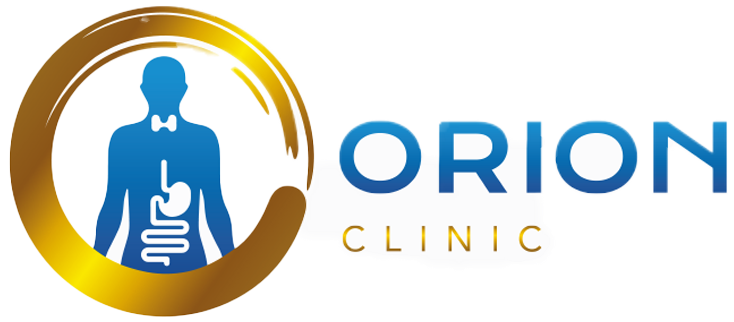Diabetes
Diabetes or Diabetes mellitus is a disease, in which more than needed amount of sugar starts to get build up in the blood. It is a metabolic disease where the hormone insulin dysfunction. The work of insulin is to moves sugar from the blood into the cells. But with diabetes, the body is not able to make enough insulin or effectively use the insulin.
There are two major types of diabetes
- Type 1 diabetes is rarer than the other type. It is an autoimmune disease where the immune system attacks and destroys cells where insulin is made.
- Type 2 diabetes occurs when the body becomes resistant to insulin,and sugar builds up in the blood.
The other forms of diabetes are
- Prediabetes condition when the blood sugar level in the blood is higher than normal, but not high enough for a diagnosis of type 2 diabetes.
- Gestational diabetes is when there is high blood sugar during pregnancy.
Symptoms
Diabetes symptoms vary depending on how levels of blood sugar. The most common symptoms of type 1 and type 2 diabetes are:
- Extreme hunger
- Increased thirst
- Frequent urination
- Ketones in the urine
- Fatigue
- Unexplained weight loss
- Blurred vision
- Slow-healing of sores
- Frequent infections
Apart from these symptoms, men with diabetes may have a decreased sex drive, erectile dysfunction (ED), and poor muscle strength. In women urinary tract infections, yeast infections, and dry, itchy skin are seen.
Causes
There are different causes that are associated with each type of diabetes.
- Type 1 diabetes: The immune system starts to attack and destroy insulin-producing beta cells in the pancreas. The reason for this is still unknown. Though, it may be associated with genes.
- Type 2 diabetes: This is associated to genetics and lifestyle factors such as being overweight or obese increases your risk too. A family history, of type 2 diabetes also increases the risk.
- Gestational diabetes: This occurs in women during pregnancy. The risk is greater for women who are overweight when they get pregnant or who gain too much weight during their pregnancy
Diagnosing Diabetes
The various blood tests that are typically used to diagnose diabetes conditions are as below-
-For Type 1 and Type 2
- Fasting plasma glucose (FPG) test: The fasting plasma glucose test is used to measures the blood sugar after fasting for minimum hours.
- Postprandial glucose test: Postprandial glucose is done two hours after breakfast. It helps to check how the body digests glucose.
- Random blood sugar test: Random blood sugar is done at any random time, not considering of the time when someone ate.
- A1C test – Glycated haemoglobin: A1C test doesn’t require you to fast measures the percentage of the blood sugar attached to the hemoglobin
-For Gestational diabetes
For Gestational diabetes blood sugar is tested between the 24th and 28th weeks of pregnancy. Treating Diabetes
-Type 1 diabetes
Type 1 diabetes is uncommon and needs insulin treatment. Depending upon various factors including age, individuals may need different doses of insulin.
-Type 2 diabetes
Type 2 diabetes is typically treated with lifestyle changes including mainly diet exercise. When lifestyle changes aren’t curing the condition medication is recommended. Depending upon glucose levels and risk factors, medication may be suggested at once along with lifestyle changes.
-Gestational diabetes
Gestational diabetes is treated by first starting to monitor blood sugar level several times a day during pregnancy. When the sugar levels are found constantly high, dietary changes and exercise may be suggested. Only in rare conditions, insulin to lower the sugar levels is recommended.
Preventing Diabetes
An uncontrolled sugar level can damage the nerves, eyes, kidneys, and other organs. The best cure is always prevention.
Though, type 1 diabetes isn’t preventable, other diabetes conditions are fairly preventable. The prevention mainly involves making simple adjustments to the diet and exercise routine. Eating fresh and local fruits and vegetables, walking regularly, controlling diet portions and maintaining a healthy weight can help one prevent diabetes.
Apart from these, individuals who are at greater risk can get regular tests done to monitor blood sugar levels.
FAQs
Diabetes mellitus is a chronic medical condition where the body cannot properly regulate blood sugar (glucose) levels due to a lack of insulin, insufficient insulin production, or the body’s inability to use insulin effectively.
There are three main types:
- Type 1 Diabetes: An autoimmune condition where the pancreas produces little or no insulin.
- Type 2 Diabetes: The body becomes resistant to insulin or does not produce enough insulin.
- Gestational Diabetes: Occurs during pregnancy and typically resolves after delivery.
- Type 1: Caused by an autoimmune response that destroys insulin-producing cells in the pancreas.
- Type 2: Linked to genetics, obesity, and lifestyle factors.
- Gestational: Hormonal changes during pregnancy affecting insulin usage.
Common symptoms include:
- Frequent urination
- Excessive thirst
- Unexplained weight loss
- Fatigue
- Blurred vision
- Slow-healing wounds
- Increased hunger
Diabetes is diagnosed through:
- Fasting Blood Sugar Test: Measures glucose levels after fasting.
- HbA1c Test: Shows average blood sugar levels over three months.
- Oral Glucose Tolerance Test (OGTT): Measures how your body processes sugar after consuming a sugary drink.
There is currently no cure for diabetes. However, it can be effectively managed with medication, lifestyle changes, and regular monitoring to prevent complications.

